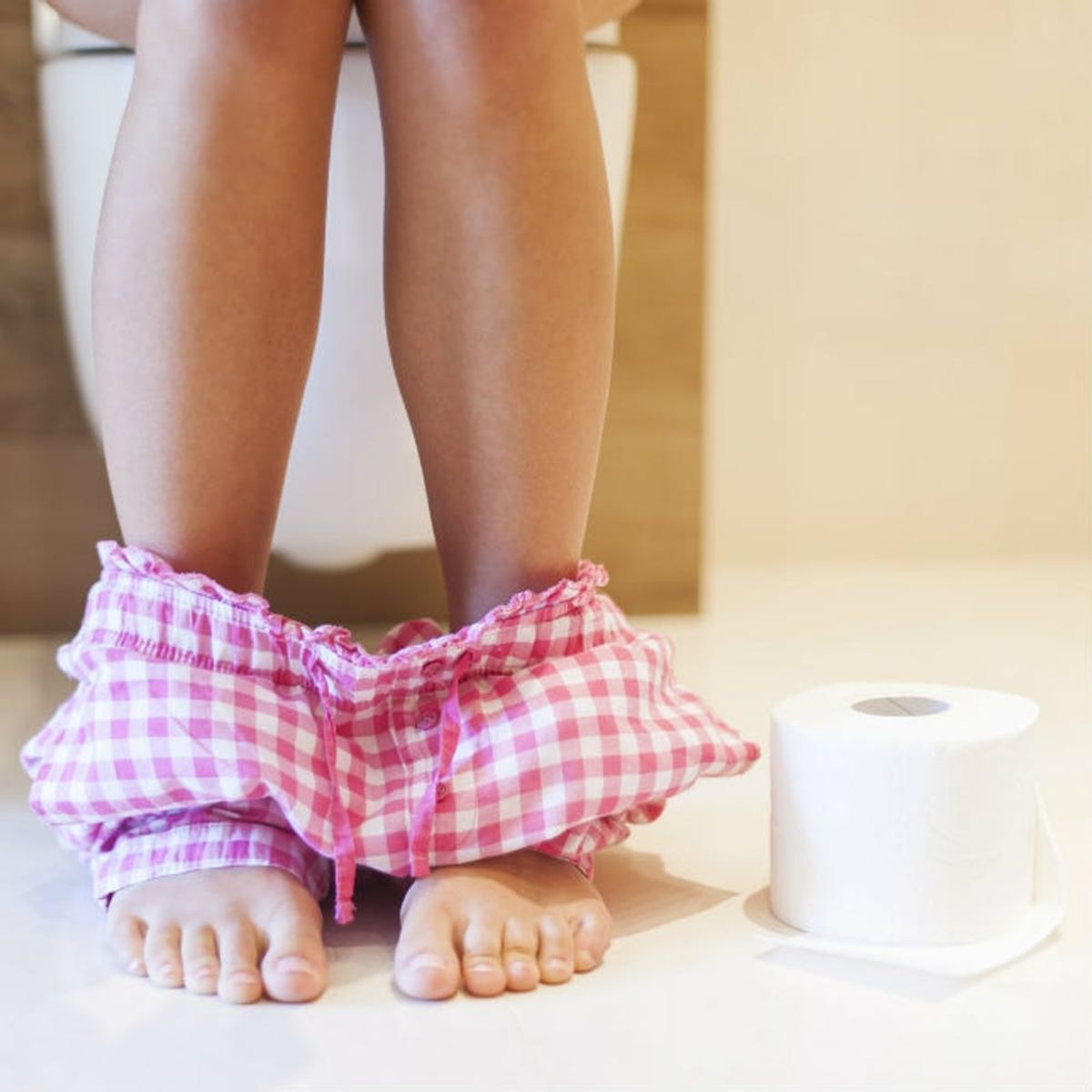What Your Number 2 Says About Your Health

Hot dogs, burgers, ice cream, guac, alcohol (followed by the drunk munchies)… summer BBQ foodreally does a number on your digestive system. It’s definitely not fun to be sitting poolside with a belly so bloated you could use it as your own personal flotation device (especially since that whole “wait an hour after you eat before you go swimming” thing is just a summertime myth). To learn how to keep things more… regular, we talked to Dr. Felicia D. Stoler, a nutritionist and exercise physiologist. She was the host of the TLC reality show Honey We’re Killing the Kids, and is the author of Living Skinny in Fat Genes: The Healthy Way to Lose Weight and Feel Great. She’s also a boss when it comes to your bowels, and shares some tips on how to identify potential health issues through the “health” of your, well, poo.
B+C: Why do you think people are hesitant to talk about their poop?
FS: I actually find that women talk about going to the bathroom more than men do. We’re just more comfortable discussing our bodily functions. Men may be more comfortable cracking poop jokes. That’s okay, because it’s clear that humor is one of the easiest ways to get the conversation going, with your friends as well as with your healthcare professional.
B+C: How often should you be going number two?
FS: People are often confused about regularity, but it’s simple. Follow the three-three rule: You should go no more than three times a day, and no less than once every three days.
B+C: Should it sink or float?
FS: It should do a steady submarine dive into the toilet bowl, without a lot of splashes or noise. If it floats too much, that’s an indication of poor nutrient absorption. If it sinks too quickly, it’s a sign you may not be getting enough fiber.
B+C: What are some of the minor and major health issues an “abnormal” number two could indicate?
FS: One of the most common issues is a lack of dietary fiber. We need 35 grams of fiber daily, but most of us get just 10 to 15 grams.
B+C: What should you eat to improve your poo health?
FS: Eat a rainbow of fruits and vegetables daily. Most people can also benefit from adding a soluble fiber supplement to their diets. My favorite is a non-GMO, natural guar fiber called Sunfiber. It normalizes both occasional constipation and diarrhea. And it won’t lead to excess gas and bloating, which are common side effects of other fiber supplements.
B+C: How does drinking enough water play in as a factor of a healthy number two?
FS: Look in the toilet bowl. If your poop is hard and/or lumpy, it’s a sign that you need to drink more water and increase your dietary fiber intake. Personally, I like to stir Sunfiber into my water. It’s invisible once you stir it in, and doesn’t change the taste. I get the hydration of water plus a dose of healthy, guar fiber to help my digestion.
B+C: What are probiotics and why are they important?
FS: Probiotics are the beneficial bacteria living in your gut. They support immune and digestive health. You can’t get enough probiotics in foods to act therapeutically, so it’s often recommended to supplement with active probiotics.
B+C: How should you care for your beneficial bacteria?
FS: Feed them with prebiotics (soluble fiber). The right form of prebiotics can nourish and stimulate the growth and activity of beneficial bacteria. Prebiotics are naturally present in many foods, such as guar (a type of legume). My favorite hack is to carry Regular Girl wherever I go. It’s a synbiotic blend of prebiotic guar fiber and active probiotics. I like it because it’s tasteless, colorless and 100 percent gluten-free.
What are your healthy number two hacks? Tweet us @BritandCo!
(Photo via Getty, infographic via Regular Girl)


















